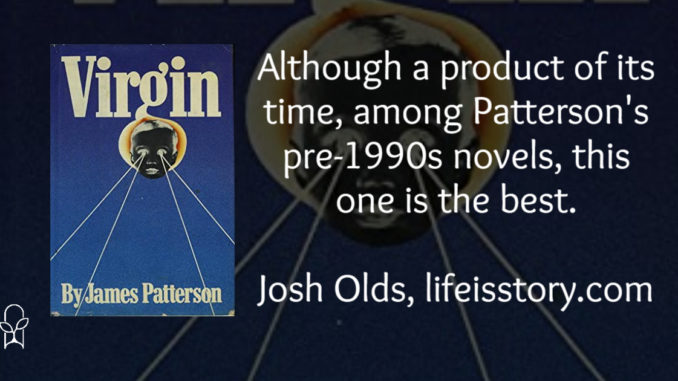
Also by this author: 1st to Die, 2nd Chance, 3rd Degree, The Horsewoman, 4th of July, The 5th Horseman, The 6th Target, 7th Heaven, The 8th Confession, The 9th Judgment
Published by McGraw-Hill Companies on January 1, 1980
Genres: Fiction, Horror, Suspense
Buy on Amazon
Goodreads

In Boston, a young woman finds herself pregnant--even though she is still a virgin.
In Ireland, another young woman discovers she is in the same impossible condition.
And in cities all around the world, medical authorities are overwhelmed by epidemics, droughts, famines, floods, and worse. It all feels like a sign that something awful is coming.
Anne Fitzgerald, a former nun turned private investigator, is hired by the Archdiocese of Boston to investigate the immaculate conceptions. Even as she comes to care about and trust the young women, she realizes that both are in great danger. Terrifying forces of light and darkness are gathering. Stepping into uncharted territory where the unknown is just the beginning, Anne must discover the truth--to save the young women, to save herself, and to protect the future of all mankind.
Virgin has the distinction of being James Patterson’s first book to be made into a movie. Granted, it was a TV movie with a budget to match, but it shows a development in Patterson’s pre-Alex Cross career that’s largely forgotten. Virgin was good enough that, in 1990, it was developed into a movie. And, looking at Patterson’s pre-90s books, Virgin is the best. Patterson’s previous book, The Jericho Commandment, centered around one religious conspiracy; this one centers around another. The Roman Catholic Church is investigating two alleged virgin pregnancies amid global chaos. A prophecy (not a biblical one, mind you) suggests that one baby will be the Second Coming of Christ while the other will be the Antichrist.
Published in 1981, Virgin plays on both religious and secular apocalyptism that was popular at the time. The Omen and The Exorcist had both been hits. Patterson delves into this mystery/horror genre with serviceable prose and an intriguing theme. It’s not great fiction, but it definitely feels like it captures the late 70s-early 80s zeitgeist. It’s certainly a better story than the prequel Left Behind trilogy written by evangelical stalwarts Jerry Jenkins and Tim LaHaye. Patterson’s pacing moves at a good clip and the mystery is retained until almost the very end. It doesn’t feel like a James Patterson novel and it’s a product of its time, but it isn’t awful.
Patterson re-published this in 2000 under the name Cradle and All (he was in his title-things-as-nursery-rhymes phase), giving it a bit of a current-Patterson edit. It then was published once more under his children’s imprint as a YA novel, which is a bit of an odd decision. The cover art is much better than the previous versions, though.
